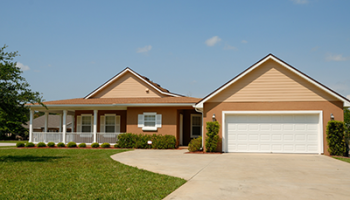Reverse Mortgage FAQ
Williamsport Reverse Mortgage FAQ
When a homeowner reaches the age of 62 they are potentially eligible for a reverse mortgage. Reverse mortgages are a way for homeowners to tap the equity in their home. To get to the bottom of reverse mortgages we discussed them with D. Shane Whitteker, owner and chief broker at Principle Home Mortgage in Williamsport, PA.
How can I get a reverse mortgage?
If you are 62 years old in the US, you can be eligible for a reverse mortgage loan. A few requirements for the reverse mortgage are that you must be the owner of the property. The home or property also must be occupied by you and your family alone to prove you are alive and the primary owner of the residence.
Why would I want a reverse mortgage?
According to Whittker, there are a number of reasons to consider a reverse mortgage.
“There are a number of reasons to get a reverse mortgage, the first being the ability to tap into your home’s equity without having to make a monthly payment to the financial institution and without having to leave the home under certain requirements,” Whitteker explains. “Reverse mortgages are used to receive a lump sum of money, to set up a monthly disbursement to you, or to set up a line of credit that you can draw from when desired.”
Whitteker says reverse mortgages can also come into play when financial planning.
“There is also a strategy used in financial planning with a reverse mortgage,” Whitteker notes. “The idea revolves around withdrawing from the reverse mortgage instead of your retirement assets during down times in the markets. Overall, this strategy really makes a significant difference in the longevity of your retirement funds.”
You may consider a reverse mortgage if you need money to complement your income or want to offset your mortgage or cater to your healthcare expenses. A reverse mortgage allows one to convert part of the equity in their property into cash even without selling their home or paying additional monthly bills.
Are there other terms for reverse mortgages?
Yes, reverse mortgages have other terms. Home Equity Conversion Mortgage (HECM) is what financial professionals call this loan. The loan is secure because the Federal Housing Administration insures the FHA in brief. These mortgages are referred to as ‘reverse’ because instead of making payments to the lender, your monthly balance grows because the interest accrues without you making a payment.
How does a reverse mortgage work?
This process begins with the borrower that already owns a property/house. They either have considerable equity in their home, or they have entirely paid off their existing mortgage. When they decide to have the liquidity accompanied by removing equity from their property, both parties work with a reverse mortgage counselor to find a program and a lender.
You choose a type of loan program and apply for a loan. A credit check is conducted, and reviews are gathered about your property, the title, and the appraisal value. It isn’t until these are approved that the lender funds the loan. The loan proceeds are structured as a line of credit, a lump sum, or a periodic annuity payment, according to your choice. Some reverse mortgages restrict how the loans should be used, while others do not.
The loans last while you are alive or until you move out of the property. At such a time, your heirs can repay the loan. Alternatively, that home may be sold to repay the lender. The money that remains after the loan has been fully repaid is given to the borrower/heir in some cases.
Will I ever have to repay a reverse mortgage?
No, but your home is on the line as collateral.
“There is no repayment requirement on a reverse mortgage. In this case the bank can take possession of the house once the borrower is either deceased or not able to stay in the home over a 12 month period,” Whitteker says. “There are options for the heirs or the owner to pay the reverse mortgage off.”
Whittker notes that heirs have an option of paying off the mortgage.
“There are limits and protections in place that make sure if the heirs or owner want to pay off the mortgage that they can do so without the payoff exceeding the value of the home,” Whitteker says. “This protection is only provided on the HUD backed HECM. The HECM requires an insurance cost of 2% of the appraised value of the home which is not cheap but does provide some significantly aggressive protection to the heirs and or owner.”
Is my reverse mortgage balance tied to inflation?
No, your balance will not be tied to inflation with a reverse mortgage.
Can I owe more than my house is worth with a reverse mortgage?
It is possible to see your loan balance grow higher than the value of your home. However, lenders cannot go after you or your heir if the property becomes underwater when the time to repay the loan is due.
Will I benefit from a reverse mortgage? How can I know?
Yes, there are many ways in which you can benefit from a reverse mortgage once you are eligible. To start with, it helps to secure your retirement, given that it allows you to turn an illiquid asset into money you can depend on to cater for your retirement expenses. With it, you do not have to sell your property to liquefy your investment. Instead, you can keep your home and get money out of it to cater to your retirement expenses. This loan can help you offset your existing property loans. With it, you do not have tax liabilities.
Will I be able to sell my home after I get a reverse mortgage?
Yes, you can still sell your property with the reverse mortgage any time you wish, just like a traditional mortgage. However, you must settle your reverse mortgage loan balance when you sell your home. As soon as you are done, the lender will close your account, and you will keep the remaining balance off your remaining equity.
What is something you think everyone should - but often don’t - know about reverse mortgages?
According to Whitteker, a key to getting a great reverse mortgage is to understand it, and the key to understanding reverse mortgages is to speak with a mortgage broker.
“There is a lot of negative stigma surrounding the reverse mortgage concept,” Whittker says. “I think it is important to find a mortgage professional who will help explain the pros and cons. In my opinion it really comes down to whether the reverse mortgage will provide benefit to the homeowner. It is also very important to understand the costs and your and your heirs’ rights in relation to a reverse mortgage.”
Who will own my home if I get a reverse mortgage?
You remain with the title deed of your property even when you have acquired the reverse mortgage. This loan is insured by the Department of Housing and Urban Development, HUD.
“You will still own the home if you have a reverse mortgage,” Whittker says. “A mortgage is a security instrument filed at your county courthouse which ensures the bank’s or investor’s interest in your property. You still own the home and are not dictated to by the bank or investor. You can build a garage, replace the roof, put in new windows, etc.”
To learn more about reverse mortgages in Williamsport or anywhere else in Pennsylvania, contact Principle Home Mortgage at (570) 980-9359.
VA Home Loans In Williamsport: A Primer
If you're looking for a Williamsport VA home loan, this article will give you a solid foundation. VA home loans - in Williamsport or anywhere else in Pennsylvania - are one of the best ways to obtain a home mortgage.
Step-By-Step Guide to Being a First Time Home Buyer
As a first time home buyer, you'll have a lot of questions. Check out our Williamsport First Time Home Buyer Guide for answers.
First Time Williamsport Home Buyer Mortgage Tips: The Inside Scoop
If you're considering buying a home in Williamsport - or anywhere else in Pennsylvania, you're guaranteed to learn something new in this informative guide.




